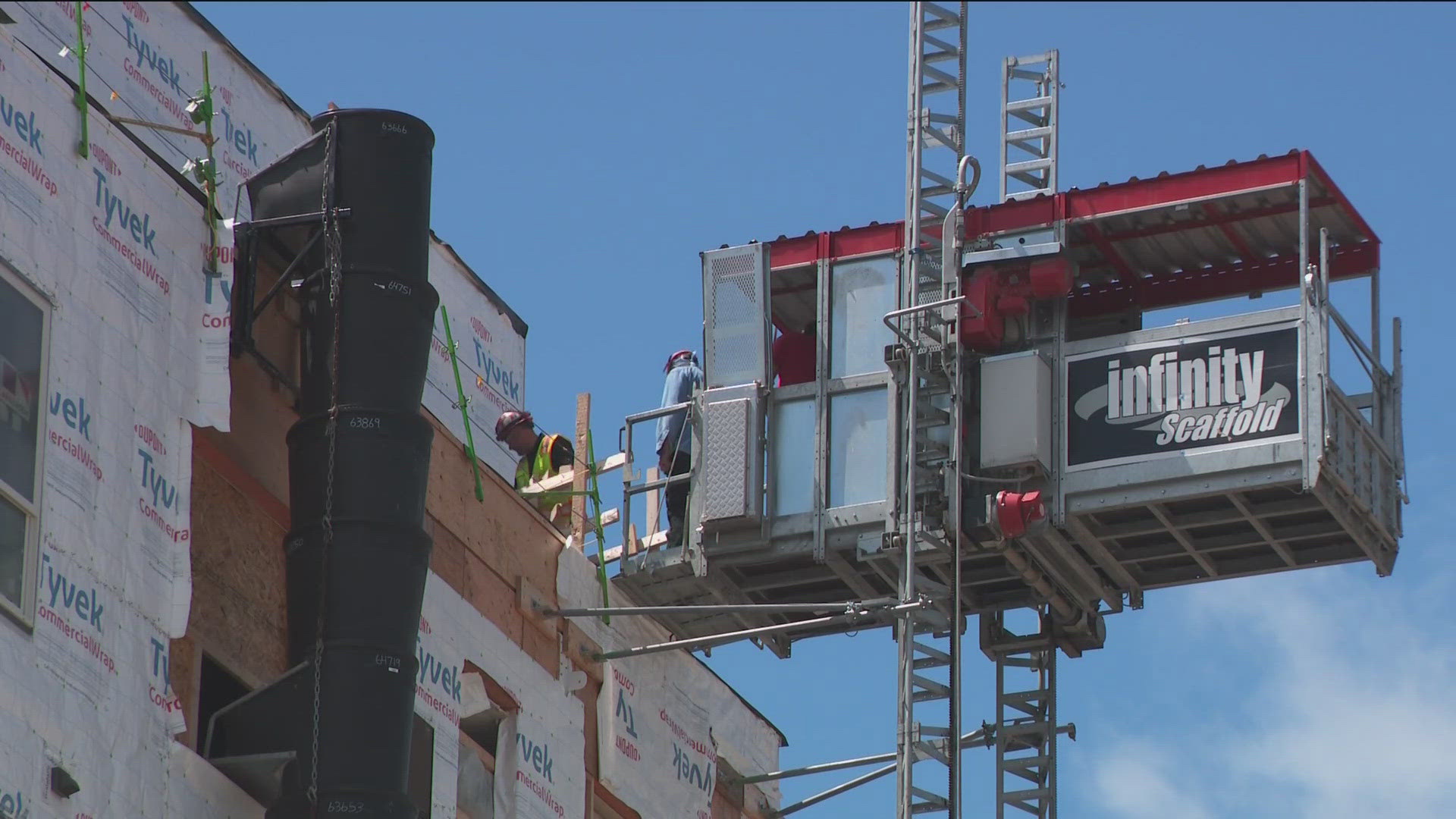MINNEAPOLIS — After years in legal limbo, the Minneapolis 2040 plan is back.
There are several pieces to it, including adding public transit, jobs and multi-family affordable housing in neighborhoods meant for single family homes. Experts say the more places there are to live keeps the cost of living down in the Twin Cities.
Except, there are more factors at play like too few building permits being pulled and it means rent prices may go up.
"We need more supply to meet that demand," said Cathy Bennett, who leads the Twin Cities Housing Alliance. The organization is only a few years old and is a non-profit tackling the industry's challenges.
"So that those who are most vulnerable to housing instability have a chance to be able to get into a home," said Bennett.
She says the metro is short some 18,000 units, but as high interest rates, labor shortages and the need for single-family homes skyrocket, developers are pulling fewer permits to build apartments.
"You have developers who are really pulling back in terms of new projects," said Cristian deRitias a senior director and deputy chief economist at Moody's Analytics.
deRitias says say doubling down on density keeps rent from rising.
"Even if those additional units cost more to produce, they're going to put downward pressure on the entire existing market, so you need to continue to add supply in order to prevent rents from rising," said deRitias.
On average, rent across the city is around $1,500 to $2,500. That could go up even more since the latest data from Housing First Minnesota shows a severe decline in overall activity with permits pulled for just 6 units – a 168% decrease compared to this same time last year.
In comparison, construction firms pulled permits for 987 multifamily units in July of 2022.
That could go up even more -- since the latest data shows only six permits were pulled in March, compared to 987 two years ago. At that time, multi-family construction had surged ahead in the metro area, making up nearly 70% of permitted housing units year-to-date.
"Which actually helps the economy overall and to be able to put more money towards food, child care and education," said Bennett.
The Twin Cities Housing Alliance says Minneapolis has very supportive housing policies, like its 2040 plan, that has encouraged so much building, the inflation rate locally has stayed low. And since it can go into effect again, builders may be encouraged to come off the sidelines and start pulling more permits for multi-family projects.
Watch more local news:
Watch the latest local news from the Twin Cities and across Minnesota in our YouTube playlist:

